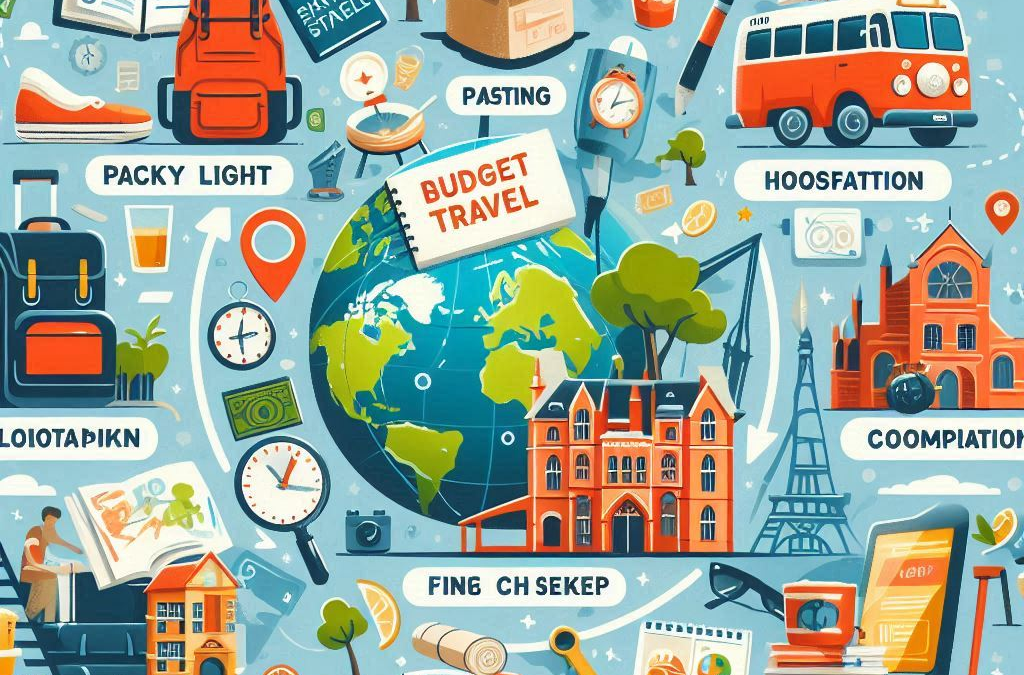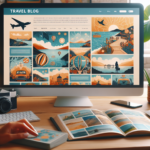
Budget travel is about exploring the world while keeping expenses low. It’s ideal for travelers who want to experience new places without breaking the bank.
Here’s an in-depth look at how to plan a budget-friendly trip.
Planning Your Budget Trip
- Set a Budget
- Determine how much you can spend overall.
- Allocate funds for transportation, accommodation, food, activities, and emergencies.
- Research Destinations
- Choose destinations known for being budget-friendly (e.g., Southeast Asia, Eastern Europe, South America).
- Look for places with affordable accommodations, food, and activities.
- Travel Off-Peak
- Travel during the shoulder or off-seasons to get lower prices on flights and accommodations.
- Avoid major holidays and peak tourist seasons.
- Flexible Dates
- Use fare comparison tools (e.g., Skyscanner, Google Flights) to find the cheapest days to fly.
- Consider mid-week flights which are often cheaper than weekend flights.
Budget-Friendly Transportation
- Flights
- Book in advance to get the best deals.
- Use budget airlines and compare prices.
- Look for error fares and flight deals on websites like Secret Flying or Scott’s Cheap Flights.
- Trains and Buses
- Use trains and buses for shorter distances or when flights are expensive.
- Look for rail passes (e.g., Eurail) or bus companies (e.g., FlixBus, Megabus).
- Local Transportation
- Use public transportation like buses, trams, and metro systems.
- Consider renting bikes or walking to save money.
Budget Accommodation
- Hostels
- Stay in dorm rooms or private rooms at hostels for budget-friendly lodging.
- Use websites like Hostelworld and Booking.com to find hostels with good reviews and amenities.
- Budget Hotels
- Look for budget hotels or guesthouses.
- Use comparison sites like Booking.com, Agoda, and Airbnb.
- Alternative Lodging
- Consider Couchsurfing for free accommodation with locals.
- Use house-sitting services (e.g., TrustedHousesitters) to stay in homes for free in exchange for pet-sitting.
Saving on Food
- Cook Your Own Meals
- Stay in accommodations with kitchen facilities to prepare your own meals.
- Shop at local markets and grocery stores for fresh, affordable ingredients.
- Eat Like a Local
- Avoid touristy restaurants and eat where the locals do.
- Try street food, which is often delicious and inexpensive.
- Meal Deals and Buffets
- Look for lunch specials, set menus, or buffets.
- Use apps like TheFork for restaurant discounts and deals.
Free and Low-Cost Activities
- Sightseeing
- Visit free attractions like parks, museums (on free days), and historical sites.
- Join free walking tours offered in many cities.
- Outdoor Activities
- Explore nature through hiking, swimming, or cycling.
- Visit public beaches, parks, and natural landmarks.
- Cultural Experiences
- Attend free festivals, events, and local markets.
- Engage in cultural activities like temple visits, local performances, and community events.
Money-Saving Tips
- Travel Insurance
- Get travel insurance to cover unexpected expenses and emergencies.
- Compare policies to find the best value for your needs.
- Currency Exchange
- Use ATMs to get local currency at better rates than exchange counters.
- Avoid exchanging money at airports or tourist areas where rates are less favorable.
- Stay Connected
- Use free Wi-Fi in cafes, hotels, and public places.
- Consider getting a local SIM card for cheaper mobile data.
- Discount Cards
- Look for city passes and discount cards for attractions and transportation (e.g., CityPASS, Go City).
- Pack Light
- Travel with carry-on luggage to avoid checked baggage fees.
- Pack versatile clothing that can be mixed and matched.
Conclusion
Budget travel doesn’t mean compromising on experiences. With careful planning, smart choices, and a bit of creativity, you can explore the world without spending a fortune. Focus on making meaningful connections, experiencing local culture, and enjoying the journey on a budget.
By following these tips, you can make the most of your travel adventures while keeping costs down. Happy travels!



